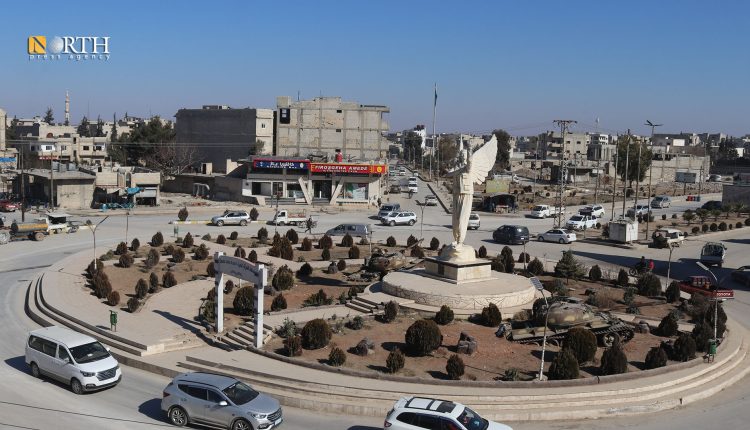Kurdish PKK Dissolution Seen as Relief for Syria and the Middle East
By Nalin Ali and Fattah Issa
KOBANI, Syria (North Press) – The Kurdistan Workers’ Party (PKK) announced this week its decision to dissolve its organizational structure and renounce armed struggle, a move widely described as a “historic opportunity” to reduce regional tensions and open a new chapter in Kurdish, Syrian, and Middle Eastern politics.
In its 12th congress, held from May 5–7, the PKK formally decided to disarm and terminate its militant operations after more than 40 years of conflict. The statement has prompted swift reactions across political spheres in Syria, Turkey, Iraq, and beyond.
“This is not just a decision for the Kurdish people—it has regional impact,” said Gulistan Ali, Deputy Co-Chair of Foreign Relations for the Autonomous Administration of North and East Syria (AANES), in an interview with North Press.
“It could be the key to solving the Kurdish issue in all four parts of Kurdistan, and usher in peace across the region.”
Ripple Effects in Syria and Beyond
Ali emphasized that the PKK’s step reflects long-standing peace efforts initiated by imprisoned Kurdish leader Abdullah Öcalan, which were repeatedly rejected by the Turkish state. She believes changing geopolitical dynamics, particularly Turkey’s recalibration of its regional strategy, may create space for genuine dialogue this time.
“Turkey will no longer have a valid pretext to attack our regions in northeast Syria,” she added, pointing to Turkey’s history of citing PKK activity to justify cross-border military interventions.
A Historic and Bold Decision
Political analyst Abdul-ilah al-Mustafa, director of the Euphrates Center for Studies, called the move “historic, courageous, and bold,” predicting that it will reshape local, regional, and international approaches to the Kurdish question.
“It opens the door for Kurdish political engagement inside Turkey and strengthens parties like the Democratic Equality and Peoples Party (Dem Parti),” he said.
“For Syria, it signals the possibility of institutional reform and perhaps even the foundation of a new political system.”
Mustafa also highlighted the recent agreement between Syrian President Ahmad al-Sharaa and SDF Commander General Mazloum Abdi to integrate the SDF into the Syrian Army, describing it as a crucial step toward long-term stability.
Turkey’s Role in Peacebuilding
Omar Youssef, from the Kurdish Progressive Democratic Party in Syria, said the timing of the PKK’s dissolution corresponds with Turkey’s urgent need to reposition itself.
“The Kurdish issue long stood as an obstacle to democratization in Turkey,” he said. “Now, resolving it could benefit both Kurdish and Turkish societies.”
He added that the PKK’s decision will enhance the Kurds’ image internationally, noting that many countries hesitated to engage with Kurdish actors due to the PKK’s designation as a terrorist organization.
Damascus–Ankara Dynamics and Kurdish Futures
Esmat Ibrahim, political bureau member of the Kurdish Left Party in Syria, said the initiative places the responsibility on Turkey:
“The ball is now in Turkey’s court,” he stated, noting Ankara’s outsized influence on Syrian foreign affairs and recent signs of a diplomatic thaw, including an invitation extended by Turkey’s foreign minister to his Syrian counterpart.
According to Ibrahim, a successful peace process could lead to the return of formerly Kurdish-majority areas like Afrin, Ras al-Ayn (Sere Kaniye), and Tell Abyad to the administration of the Autonomous Administration.
A Rare Opportunity for Transformation
Kilo Issa, a central committee member of the Syrian Kurdish Democratic Party, reinforced that a political resolution in Turkey could have direct implications for northeast Syria:
“Previously, Turkey pressured President al-Sharaa to stall Kurdish agreements,” Issa said. “Now that pressure could subside, enabling renewed Syrian-Kurdish dialogue.”
Observers agree that the dissolution of the PKK—though symbolically powerful—will only deliver results if Turkey and other regional actors engage seriously and constructively.
“This is a rare moment,” concluded political analyst Lina Haroun. “If seized properly, it could reset the trajectory of not just Kurdish politics, but Middle Eastern diplomacy.”

